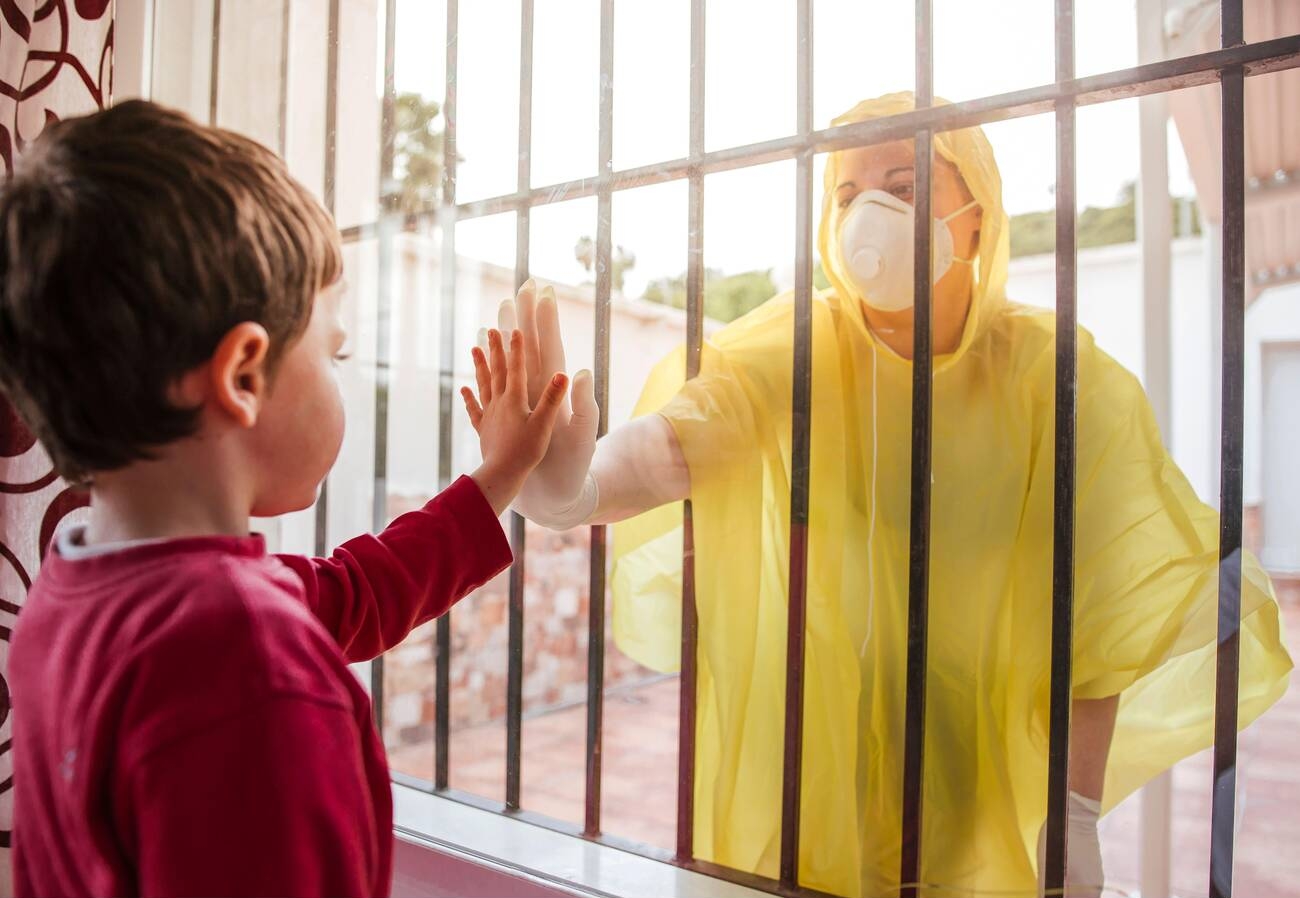Oppositional Defiant Disorder in Children
Children are usually inclined to misbehave or break rules on occasions. But, some children display extreme hostility or persistent defiant behaviors compared to others.
If your child or anyone you know has displayed such extreme behaviors, then there is a possibility that they suffer from Oppositional Defiant Disorder (ODD).
ODD is the behavioral condition in which children exhibit uncooperative and mostly hostile behavior towards their parents, peers, authority figures or strangers. However, it is a matter of concern if the persistent and frequent patterns of irritable or argumentative behaviors last at least six months.
For better understanding, let’s consider the case of a child with ODD.
ODD Case
Nicole has a 4-year-old son named Tyler, who has severe temper tantrums. Tyler gets angry about almost everything and troubles his mother by breaking things, kicking the door, screaming, and yelling at elders. At one time, Nicole decided to punish him by restricting him inside the room as she intended to calm him before the guests arrived. Nicole felt helpless and fought back her tears. The next moment she heard the door banging and Tyler yelling. She hears a loud crashing noise and runs to open the door. But to her horror, Tyler had climbed up the bookshelf and ripped curtains off the railing, which resulted in him breaking the bookshelf down. Nicole shouted and ran after him as he tried to escape. At that moment, she sat down, wiped her tears and decided to get help. The next morning, Nicole discussed the matter with Tyler’s pediatrician; he suggested that Tyler requires oppositional defiant disorder treatment from a behavior therapy clinic. Finally, he helped book an appointment with a Clinical Psychologist, Dr Bell.
The above case suggests that a child may be at any severity level of anger issues. Oppositional defiant behavior treatment helps a child come back to normality and learn socially acceptable behaviors. But, in order to screen out a child suffering from oppositional defiant disorder, you first need to examine the pattern of their defiant behaviors. Also, determine if they exhibited these behaviors in front of someone other than their family members.
Symptoms of Oppositional Defiant Disorder
The symptoms of ODD in a child usually appear in their preschool years or at most till the age of early adolescence. Oppositional defiant disorder in children is diagnosed on the basis of symptoms of angry/irritable mood, defiant/argumentative behavior, or vindictiveness. The symptoms appear in the child’s early 6-8 years of age. However, a formal psychological evaluation of these behaviors characterizes symptoms of oppositional defiant disorder in children and guides toward a treatment plan accordingly. As per the diagnostic criteria of DSM-5:
Children with ODD exhibit angry or irritable moods:
- Loses temper on trivial matters at home or at school
- Easily gets annoyed or often feels touchy during plays
- Child often gets angry or resentful with parents or siblings
Children with ODD exhibit defiant or argumentative behavior
- Mostly argues with authoritative figures, children their age or adolescent
- Does not abide by rules and often refuses to comply with requests or orders
- Often enjoys picking fights or annoying others in the wake of seeking trouble
- Likely to blame others for their wrongdoing or misbehavior
Vindictive behavior in children with ODD
- May have been spiteful or vindictive twice in the past six months
Similarly, it is essential to determine that this disturbance in a child’s behavior is due to associated distress caused by family or anyone around them. As per research conducted in the US, ODD appears to be more prevalent in male children than in females.
Risk Factors of Oppositional Defiant Disorder
There are certain risk factors that become the cause of oppositional defiant disorder in children. Some biological, behavioral, emotional and environmental factors have proved to be the root cause of ODD such as;
- Genetics is considered the key factor in causing ODD in children
- Neurobiological markers such as abnormalities in the amygdala and prefrontal cortex
- Early developmental milestones delay becomes a significant cause of ODD
- History of ADHD, ODD, or CDD in parents also contributes to ODD in their children
- Impaired brain activity could contribute to faulty reasoning or impulse control
- Parental rejection or strictness could cause ODD in children
- Problematic behaviors learned from the environment cause ODD
- Internal family conflicts or displays of violent behavior could cause ODD
- Children of antisocial parents, drug addicts or schizophrenics develop ODD
- Lack of love, affection and acceptance from parents in the early developmental period
Children with oppositional defiant disorder have an increased risk of problems in adjusting as adults. They may exhibit antisocial behavior, substance abuse, impulse control problems, anxiety or depression. Also, there is a greater risk of developing low self-esteem issues later in life.
Treatment for Oppositional Defiant Disorder
If not treated at an early stage, ODD takes the form of conduct disorder, which is a more serious behavioral condition. So, the question here arises, how to treat oppositional defiant disorder. Behavioral and conduct problems usually aggravate with age. Therefore, it is important to treat ODD in children before they enter their teens. However, one must be mindful that an individualized treatment plan is most appropriate for treatment for oppositional defiant disorder, considering the child’s age, symptoms, severity level, and support systems.
Child-Focused Therapy: Child-focused therapy is primarily suggested for children with oppositional defiant disorder. Particularly, cognitive behavioral interventions work best, such as problem-solving skills training. Following are suggested child-focused behavioral interventions.
Problem Solving Skills Training: In this technique, the therapists combine modeling, practice, role-playing and systemic rewards with teaching children constructive thinking and positive social behaviors. While practicing the technique, the therapist solves tasks or plays games involving children and later encourages them to apply the learned skills and lessons to the tasks from real-life situations.
Coping Power Program: Children with ODD participate in group sessions that teach them how to manage their anger effectively, keep situations in perspective, become more aware of triggers, solve problems, be mindful of their own emotions, set clear goals, build social skills, and effectively handle peer pressure. Generally, child-focused techniques help manage and reduce aggressive behavior and prevent them from turning to substance abuse.
Medication: In some cases, medication as a treatment for odd in child has proved effective for aggressive behavior. Clinicians suggest that stimulant drugs help reduce the symptoms of anger, irritability or hostility.
ABA Therapy for ODD
Applied behavior analysis therapy has proved most beneficial for treating children with oppositional defiant disorder. Basically, aba therapy for odd is applied to treat observable defiant behavior of children such as; anger issues, tantrum behaviors, non-compliance, challenging behaviors, and defiant or oppositional behavior.
Mostly, children display angry behavior as it is quickly followed by a reinforcement that invokes an immediate response in the form of attention. It helps children attain the desired response either from parents or teachers. For that matter, an ABC pattern of antecedent, behavior and consequence is taught to children. In order to replace these reinforced unwanted behavior of children, ABA therapy for odd is put into practice.
Operant Conditioning Techniques: Applied behavior analysts apply operant conditioning techniques by introducing alternate reinforced behavior in children. Instead of giving the child the desired reaction to their anger outbursts, the child is positively reinforced when speaking politely, saying “please” or “kindly.”
Introducing Alternate Behaviors: A child usually appears angry when misunderstood, feels powerless, or sad. Applied behavior analysts introduce alternative behaviors encouraging their positive choices instead of anger or hostility. For instance, a healthy expression of behavior when faced with challenging situations is verbally reinforced, such as; “you did the right thing” or “I am so proud of you.” When repeatedly reinforced, the alternate behavior would be naturally encouraged in the child.
Final Thoughts
If you are scared of your child’s tantrums and feeling helpless about their condition, then we suggest you consult an ABA therapist in Dubai at Camali Clinic. Seeking behavioral and psychological therapy is your first step towards helping your child manage their moods and behaviors.
Contact Camali Clinic – Child and adolescent therapy center for early ODD intervention, parent consultation and training sessions for small group of school children.





